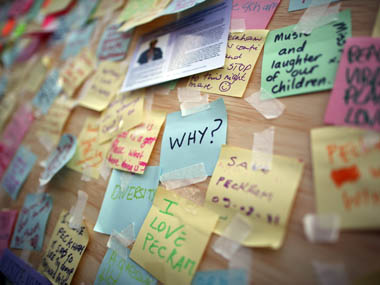London riots: The search for reasons has just begun
FP Staff
• August 11, 2011, 15:20:43 IST
The riots in Britain have raised concerns over parenting, bad policing, race and a culture, where it’s okay for the youth to be greedy and violent.
Advertisement
End of Photostory
)